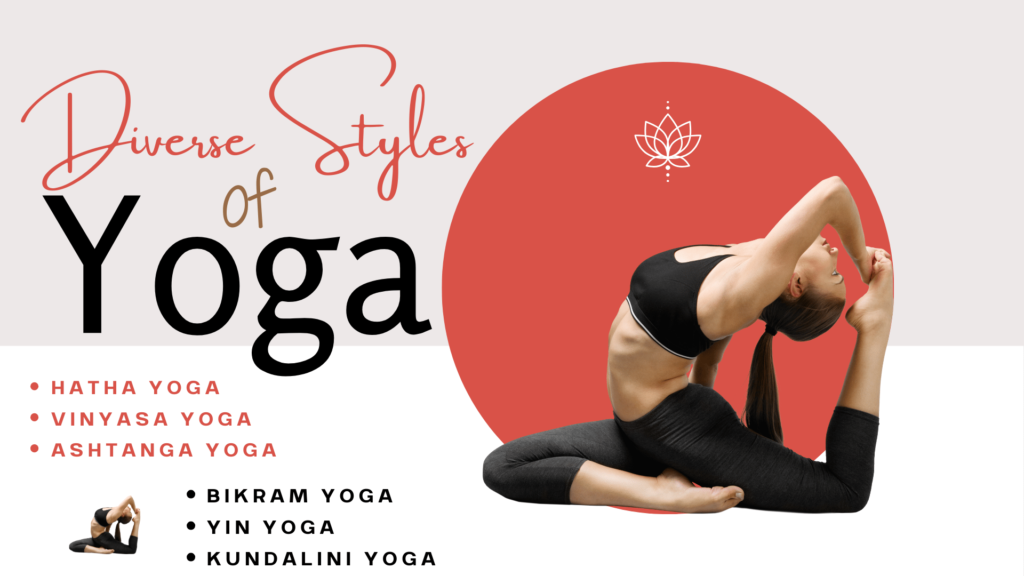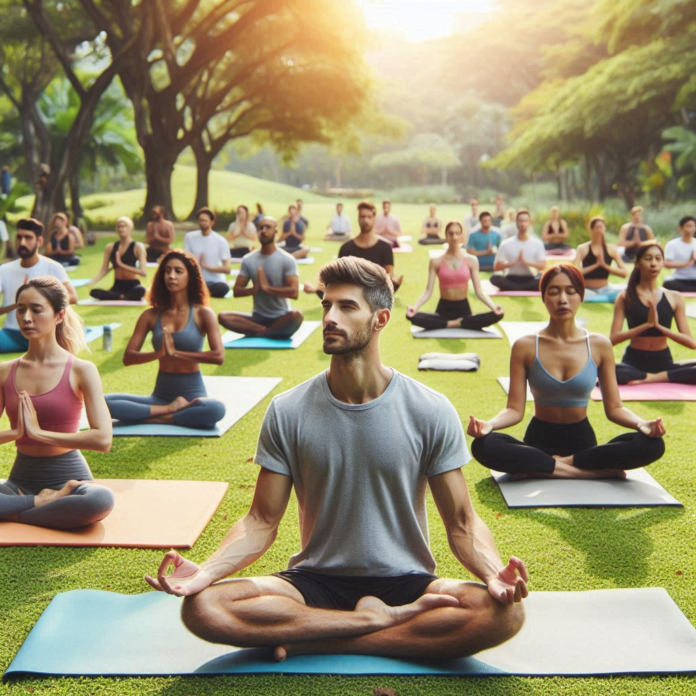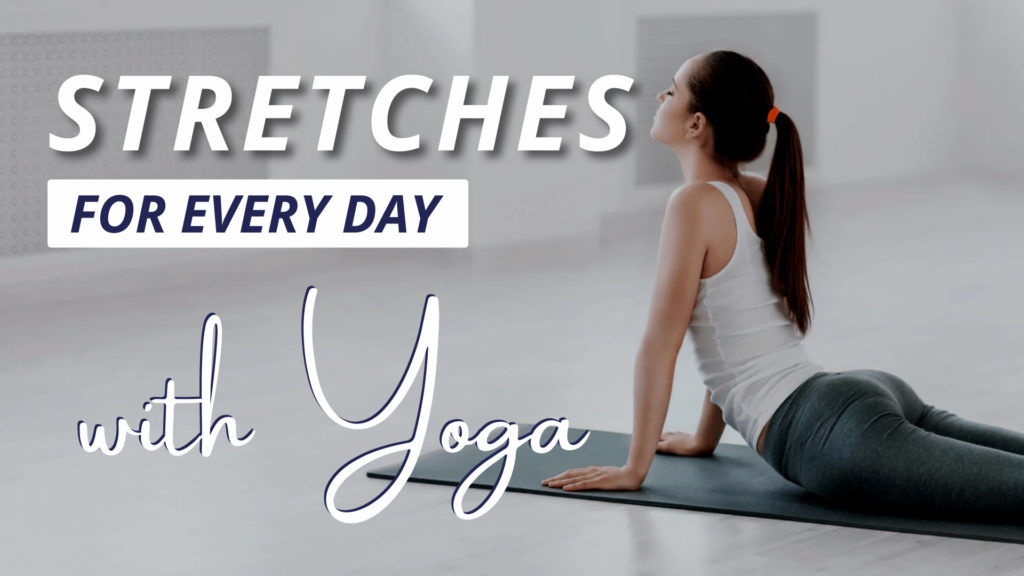Introduction to Yoga

Yoga is a timeless practice that harmonizes the body, mind, and spirit. Originating from ancient India, yoga encompasses physical postures, breathing techniques, and meditation, offering a holistic approach to well-being. Whether you’re looking to improve flexibility, reduce stress, or find a moment of peace, yoga provides an accessible path to overall health.
The Diverse Styles of Yoga

There are various styles to cater to different needs and preferences :
Hatha Yoga : Focuses on basic postures and breathing exercises, ideal for beginners.
Vinyasa Yoga : A dynamic style linking movement with breath, suitable for those seeking a vigorous workout.
Ashtanga Yoga : A structured sequence of postures that enhances strength and stamina.
Bikram Yoga : Practiced in a heated room to detoxify and improve flexibility.
Yin Yoga : Involves holding poses for longer periods to target deep connective tissues.
Kundalini Yoga : Combines physical postures, breathwork, and chanting to awaken spiritual energy.
Restorative Yoga : Uses props to support the body, promoting deep relaxation and stress relief.
Physical and Mental Benefits of Yoga
Yoga offers numerous physical benefits :
Flexibility and Strength : Regular practice stretches muscles and increases range of motion while building strength.
Improved Posture : Strengthens the core and back muscles, enhancing overall alignment.
Mentally, yoga is a powerful tool for :
Stress Reduction : Combines movement, breath control, and meditation to activate the parasympathetic nervous system, promoting relaxation.
Enhanced Focus : Mindfulness practices improve concentration and mental clarity.
Starting Your Yoga Journey
Getting started with yoga is simple and requires minimal equipment. Choose a style that suits your fitness level and goals, such as Hatha for a gentle introduction or Vinyasa for a more active session. A yoga mat, comfortable clothing, and possibly some props like blocks and straps are all you need. Joining a class or finding an instructor can provide valuable guidance, especially for beginners.
Common Misconceptions About Yoga
There are several misconceptions about yoga :
Yoga is Only for the Flexible : Yoga is for everyone, regardless of flexibility. It helps you become more flexible over time.
Yoga is a Religion : Yoga has spiritual roots but is not a religion. It can complement any belief system.
Yoga is Just a Trend : Yoga’s enduring popularity over thousands of years demonstrates its lasting value.
The Importance of Breathing in Yoga
Breathing, or pranayama, is a core aspect of yoga. Techniques like diaphragmatic breathing and alternate nostril breathing enhance the flow of prana (life force), improving physical and mental health.
Creating a Home Yoga Practice
Establishing a home yoga practice can be incredibly rewarding. Find a quiet, comfortable space and set up your mat and props. Start with short, manageable sessions and gradually increase the duration as you become more comfortable.
Yoga for Different Life Stages
Yoga is adaptable to different stages of life :
Yoga for Kids : Engaging activities that help develop body awareness and relaxation skills.
Yoga During Pregnancy : Prenatal yoga supports maternal and fetal health through gentle stretches and breathing exercises.
Yoga for Seniors : Promotes flexibility, balance, and wellness with modifications to accommodate physical limitations.
Yoga and Diet
A mindful diet can enhance your yoga practice. Focus on whole foods like fruits, vegetables, and lean proteins. Staying hydrated is crucial, especially for vigorous styles like Bikram yoga.
Overcoming Challenges in Yoga
Common challenges include physical limitations and maintaining motivation. Work with an instructor for modifications and set realistic goals to keep yourself motivated. Tracking your progress and joining a community can also help.
Incorporating Yoga into Daily Life
Even with a busy schedule, you can integrate yoga into your day. Simple poses like Child’s Pose and Downward Dog can be done in a few minutes to relieve tension. Yoga before bed can improve sleep quality by calming the nervous system.
Conclusion
Yoga is a versatile and accessible practice offering numerous benefits for the body and mind. Whether you seek physical fitness, stress reduction, or mindfulness, yoga can enrich your daily life. Begin your yoga journey today and experience its profound impact.
FAQs
Is yoga suitable for beginners?
Absolutely! Many styles of yoga are beginner-friendly. Look for Hatha or Restorative yoga classes to start.
How often should I practice yoga?
Even a few minutes of yoga each day can be beneficial. Aim for at least three times a week to see noticeable improvements.
Can yoga help with weight loss?
While yoga is not a high-intensity workout, it can aid in weight loss by reducing stress, improving mindfulness, and promoting a healthy lifestyle.
Do I need to be spiritual to practice yoga?
No, yoga can be practiced purely for its physical and mental benefits without any spiritual elements.
What should I wear to a yoga class?
Wear comfortable, breathable clothing that allows you to move freely. Many people prefer fitted clothes to avoid adjusting them during poses.




